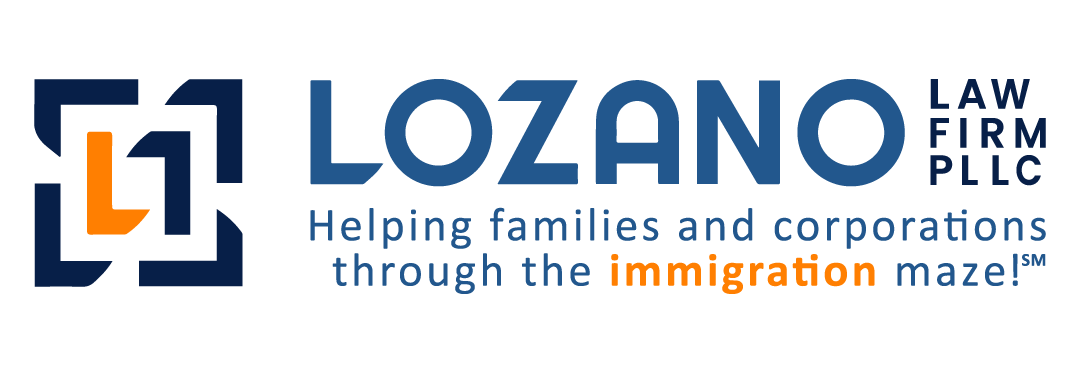Receiving approval for Form I-130 is a significant step in the immigration process, but it’s far from the end. Many petitioners and beneficiaries are unsure of what to expect next. This uncertainty often raises questions about the next steps and how to move forward successfully.
The immigration process can feel complicated, leaving many wondering how to move forward. This article provides details to help you understand what happens next. Learn about adjustment of status, consular processing, common challenges, and how legal support can ease the process.

What Does I-130 Approval Mean?
Form I-130, Petition for Alien Relative, is the first step in the family-based immigration process. This petition establishes the relationship between a U.S. citizen or lawful permanent resident and their relative abroad. Its approval confirms the qualifying connection necessary to proceed with the following stages of the process.
Family relationships are central to U.S. immigration. However, they are prioritized differently based on the type of connection. Some relatives have shorter wait times for I-130 approval, while others face significant delays due to visa limits. Beneficiaries are classified into two main categories:
- Immediate Relatives: This category includes spouses, unmarried children under the age of 21, and parents of U.S. citizens. These relationships are prioritized, and visa numbers are always available for them.
- Family Preference Categories: This group covers more distant relatives, such as adult children, married or unmarried, and siblings of U.S. citizens. Additionally, it includes spouses and children of lawful permanent residents (LPR). These categories are subject to annual numerical limits, and wait times can range from months to years.
After waiting, receiving approval is an exciting and rewarding moment. However, it doesn’t automatically grant the beneficiary permission to live or work in the United States. Instead, it paves the way for the next phase, which could include adjustment of status or consular processing. The specific steps depend on where the beneficiary’s location.
What Happens If The Beneficiary Is In The U.S.?
Beneficiaries already in the U.S. and meet eligibility requirements may apply for adjustment of status (AOS). This process allows them to transition to lawful permanent resident status without leaving the country. Here’s what to expect after petition approval.
Filling Form I-485
Once eligible, the beneficiary files Form I-485, Application to Adjust Status, with USCIS. This process includes submitting documents such as proof of identity, the approved I-130, and financial evidence like Form I-864. An attorney can ensure your submission is accurate and complete to avoid delays.
Attending The Biometrics Appointment
The following mandatory step is the biometrics appointment. USCIS schedules this appointment to collect fingerprints, photographs, and signatures for background and security checks. This step confirms the applicant’s identity and verifies they meet all security requirements for adjustment of status.
Appearing For The USCIS Interview
In some cases, the beneficiary will need to attend an in-person interview. During this step, an immigration officer will review the application and ask questions to verify the information provided. Both the petitioner and beneficiary typically attend the interview together.
Receiving A Decision
After the interview, USCIS will decide on the outcome. If the application is approved, the beneficiary will receive their green card, officially granting them permanent resident status. If denied, USCIS will explain the reasons and provide information on any available remedies, such as appeals or re-filing.
Adjustment of status allows beneficiaries in the U.S. to pursue permanent residency without leaving the country, offering convenience during the process. However, not every immigration journey begins within the United States. Some beneficiaries reside abroad and must follow a different pathway known as consular processing.
How Does The Process Work Abroad?
Consular processing allows beneficiaries abroad to secure an immigrant visa and permanent residency. It is a key step for those who cannot adjust their status within the U.S. Here is what to prepare for after the I-130 approval.
Expect A Notification From NVC
Once USCIS approves the I-130, the petition goes to the National Visa Center (NVC). The NVC assigns a case number and contacts the petitioner and beneficiary with instructions for the next steps. This notification typically includes details on required forms, documents, and deadlines to keep the case moving forward.
Attend The Appointment
After completing the necessary paperwork and submitting the required documents, the NVC schedules a consular interview. This appointment happens at a U.S. embassy or consulate in the beneficiary’s country of residence. During this step, a consular officer evaluates the case to confirm eligibility for an immigrant visa.
Notify NVC If There Are Changes
The beneficiary must inform the NVC of any changes in address, turning 21, or an updated marital status. Such changes can affect visa eligibility or alter the processing timeline. Providing updates keeps the case accurate and avoids delays or complications.
Pay The Required Fees
After receiving the visa, beneficiaries must pay the USCIS Immigrant Fee online before traveling to the United States. This fee covers processing the visa packet and producing the Green Card. Paying ensures smooth processing upon arrival in the U.S.
Receive Approval From CBP
After the consular officer approves the immigrant visa, the beneficiary can travel to the United States. Upon arrival, Customs and Border Protection (CBP) officers review their documents at the port of entry. After CBP approves, the beneficiary gains LPR status, and USCIS mails their green card to their U.S. address.
Consular processing is vital for beneficiaries abroad, bringing them closer to reuniting with loved ones in the United States. While following the steps can help the process go smoothly, both consular processing and adjustment of status come with challenges that may require guidance.
What Challenges Might Arise After I-130 Approval?
An I-130 approval is a significant milestone, but it doesn’t mean the journey is over. The following steps often bring challenges depending on the beneficiary’s circumstances and visa category. Understanding these challenges ahead of time can help you stay prepared and take action when necessary. Here are some examples:
Visa Availability Delays
Family preference categories often require beneficiaries to wait months or even years for a visa number. The timing depends on the priority date and the Department of State’s Visa Bulletin, which shows when visas become available. These delays can be frustrating, but regularly checking this informs petitioners about their case’s progress.
Errors In Forms Or Applications
Mistakes in immigration forms, like incorrect information or missing signatures, frequently cause delays or denials. Applicants can avoid setbacks by thoroughly reviewing all forms and supporting documents before submission. Taking the time to prepare helps the process move forward without interruptions.
Inadmissibility Issues
Immigration violations, criminal records, or health concerns can prevent beneficiaries from obtaining a visa or adjusting their status. Resolving these issues requires attention to detail and careful documentation. In some situations, beneficiaries submit waivers to address specific barriers, ensuring their case progresses.
Documentary Requirements
Incomplete or inaccurate documentation often leads to delays when USCIS or the NVC requests additional evidence. Submitting accurate and complete documents on time avoids these interruptions. Keeping all paperwork organized ensures beneficiaries meet requirements efficiently and reduces unnecessary problems.
Consular Processing Complications
Beneficiaries outside the U.S. may encounter delays during consular processing, including postponed interviews or errors in visa applications. Responding promptly to any requests and preparing can reduce disruptions. Careful planning ensures a smoother path through consular processing.
Unexpected Life Events
Life changes like job loss, financial struggles, or health issues often disrupt meeting requirements like the Affidavit of Support. Addressing these changes helps keep the case on track. Taking quick action allows beneficiaries to meet requirements and avoid additional delays.
These challenges can cause uncertainty and stress but are manageable through preparation and timely action. Successfully addressing issues requires careful attention to detail and a clear understanding of immigration laws. Legal representation provides the guidance and support needed to overcome these obstacles and move forward confidently.
How Does Lozano Law Firm Support Family Reunification?

Family reunification is one of the most meaningful aspects of immigration law, and we know how important it is to bring loved ones together. The process can be confusing, with forms, strict deadlines, and detailed requirements. That’s why we’re here to make this journey smoother for you and your family while addressing any challenges.
Our team is dedicated to guiding families through every step of the immigration process, including what comes after I-130 approval. Whether you’re applying for adjustment of status or navigating consular processing, we’ll ensure you’re informed and prepared.
We take a personalized approach to every case, understanding that no two families are identical. Whether your relative is in the U.S. or abroad, we’ll tailor our strategy to meet your needs. If complications arise, such as delays or requests for additional evidence, we’ll work quickly to address them.
Above all, we care about helping families reunite and build a future together. Immigration processes can feel like a maze, but you don’t have to face it alone. By choosing us, you’re gaining a partner committed to advocating for your family’s goals with knowledge and care.
Summary
An I-130 approval is an important milestone in the family-based immigration process, but it is just one step toward permanent residency. The process requires adherence to legal requirements, whether through AOS for those in the U.S. or consular processing for beneficiaries abroad.
Challenges such as visa delays, inadmissibility issues, and unforeseen complications can arise, making preparation and accurate filing critical. Therefore, having legal representation can help you address obstacles effectively. Lozano Law Firm offers compassionate, reliable support to help you achieve your family’s immigration goals.


 Thank you for contacting us. Please complete this form and one of our team members will be in touch with you soon.
Thank you for contacting us. Please complete this form and one of our team members will be in touch with you soon.

